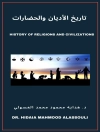In ‘Luther and the Reformation, ‘ Joseph Augustus Seiss meticulously explores the profound impact of Martin Luther’s revolutionary ideas on the theological landscape of the 16th century. Employing a clear yet eloquent literary style, Seiss delves into the socio-political context of the Reformation, tracing Luther’s journey from monk to reformer, while illuminating the interplay between faith and reason that characterized this transformative era. The text is enriched with vivid historical depictions and analytical rigor, making it an essential reading for those interested in the roots of Protestantism and its enduring legacy. Joseph Augustus Seiss (1823-1904) was an eminent Lutheran theologian and a fervent advocate for the Reformation’s core tenets. His educational background, steeped in the teachings of the Reformation, along with his pastoral experiences, provided him with unique insights into the depths of theological debate and the ecclesiastical challenges of his time. Seiss’s affinity for Luther’s works and his commitment to their interpretation were instrumental in shaping this scholarly work. I highly recommend ‘Luther and the Reformation’ to anyone seeking an in-depth understanding of the Reformation’s complexities and its significance in shaping modern Christian thought. Seiss’s keen analysis and passionate narrative not only make the book an engaging read but also an indispensable resource for scholars, theologians, and history enthusiasts alike.
Despre autor
Joseph Augustus Seiss (1823–1904) was an American theologian and preacher known for his evangelical work and scholarly contributions to Protestant literature. Born in Graceham, Maryland, Seiss showed an early interest in religious studies and pursued his clerical work with passion, emerging as a prominent figure in the Lutheran church. Known for his eloquent preaching and robust theological knowledge, Seiss penned numerous works that cemented his legacy within the realm of Christian literature. One of his most notable works, ‘Luther and the Reformation’ (1883), is a comprehensive account that offers insight into Martin Luther’s life and the monumental movement that drastically altered the Christian landscape. Through this text and others, Seiss presents a vivid narrative that melds historical accuracy with theological discourse. Seiss’s literary style is characterized by its meticulous attention to historical detail and its attempt to draw practical lessons for contemporary faith from the analysis of past events and figures. Seiss is also remembered for his allegorical approach to biblical interpretation, often linking scriptural prophecies to astronomical events, which was reflected in another of his major works, ‘The Gospel in the Stars’ (1882). Whether through his sermons or his writings, Seiss’s impact on the theology of his time is still acknowledged by scholars and theologians who continue to explore the depths of Protestant Christian thought.




